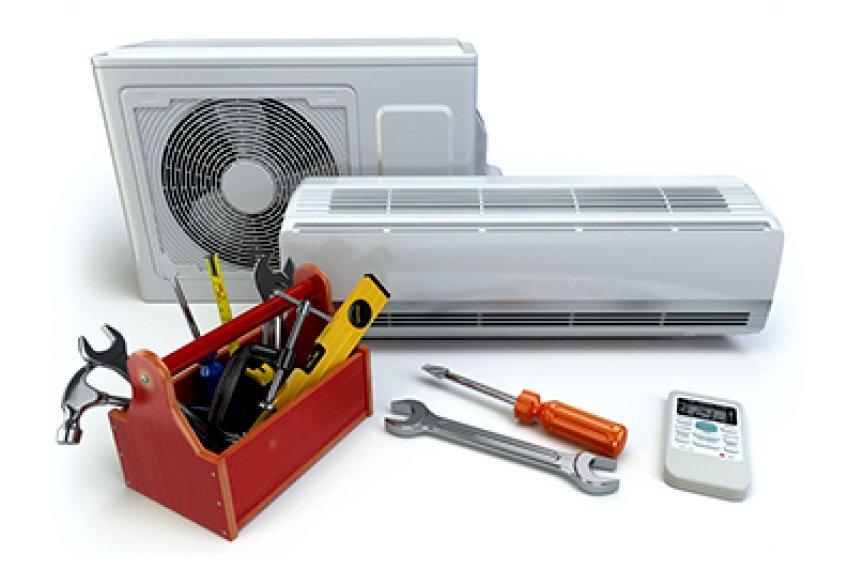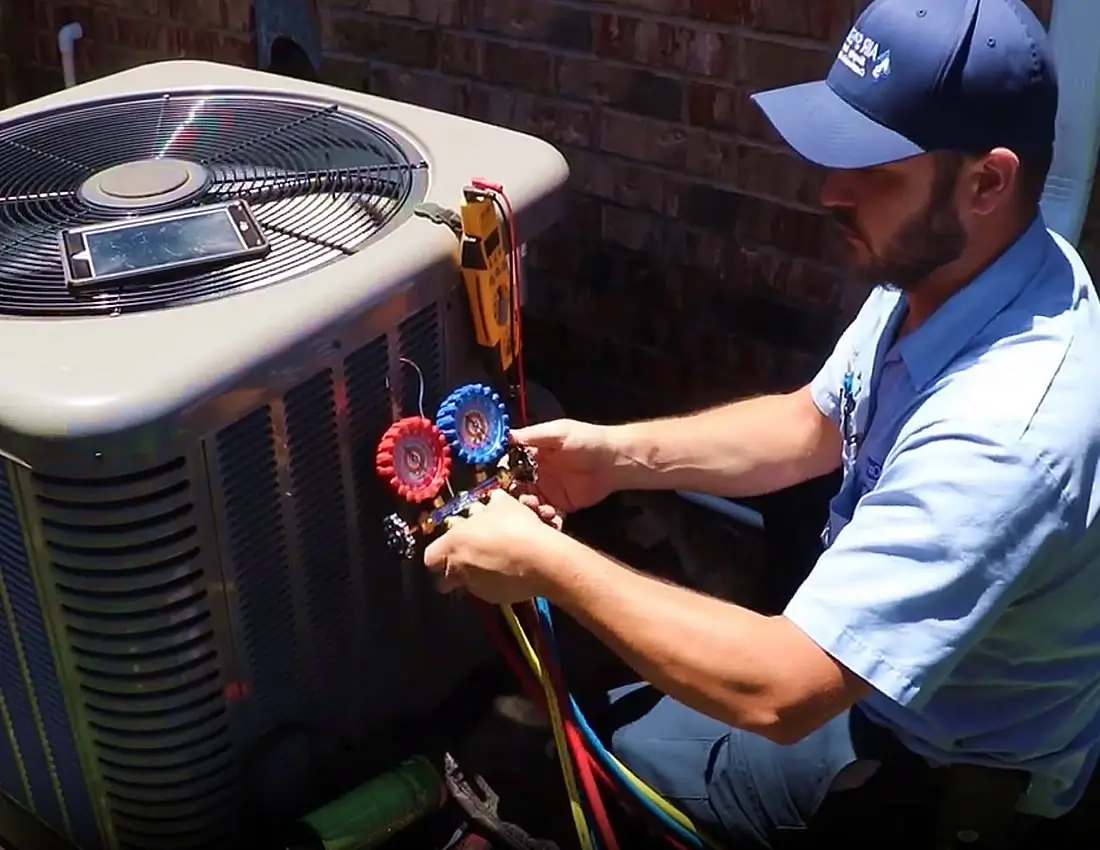Indicators on Ac Fixing You Should Know
Indicators on Ac Fixing You Should Know
Blog Article
The Buzz on Ac Fixing
Air conditioning Repair Near Me: Expert Cooling System Repair Ensures Your Home Remains Comfy Throughout The Year
Types of Air Conditioner Systems
When taking on air conditioner repair work, understanding the type of air conditioning system you're handling can conserve time, cash, and aggravation. Ever questioned why some systems cool a room quicker than others? Or why certain systems seem to break down more regularly? Let's peel back the layers.
Central Air
The Ultimate Guide To Ac Air Conditioner Repair
Imagine a cool breeze streaming through an entire house, whispering comfort into every corner. Central air systems do precisely that. They use a network of ducts to disperse cooled air, relying on a compressor and condenser outside, coupled with an evaporator coil inside. When this complex monster fails, pinpointing the issue can be like discovering a needle in a haystack.
Split Systems

Split systems are a popular choice for numerous homes-- part indoor unit, part outdoor compressor. They use versatility and performance, however their double nature implies repair work can include either part. Have you ever heard a weird noise outside your home only to find the indoor unit isn't cooling? That's a traditional sign of a split system problem.
How Ac Repair can Save You Time, Stress, and Money.
Window Units
These compact warriors fight summertime heat by fitting comfortably into a window frame. They combine all parts into a single box. Their simpleness typically indicates less repair work headaches, however disregarding filters or allowing debris accumulation can lead to decreased performance or breakdowns.
Ductless Mini-Splits
The Best Strategy To Use For Air Conditioner Repair Near Me
Ductless systems bypass ductwork entirely, making them ideal for homes without existing ventilation. They're peaceful, effective, and surprisingly durable. When repair work are required, specialists need to be skilled at managing refrigerant lines and electrical connections-- no little accomplishment.
Quick Referral Table
| Type | Key Includes | Common Repair Issues |
|---|---|---|
| Central Air | Ductwork, whole-house cooling | Duct leaks, compressor failure |
| Split System | Indoor & & outdoor systems | Refrigerant leakages, fan motor issues |
| Window Unit | All-in-one, simple setup | Dirty filters, electrical faults |
| Ductless Mini-Split | No ducts, zoned cooling | Line leakages, sensing unit breakdowns |
The 10-Second Trick For Air Conditioner Repair Near Me
Deciphering one of the most Frequent Air Conditioning Problems
Have you ever questioned why your ac system unexpectedly stops cooling during a sweltering afternoon? One common culprit is an unclean or clogged air filter. This tricky bad guy restricts airflow, requiring your here system to work overtime, which not just decreases efficiency but can also lead to premature breakdowns. Imagine trying to breathe through a scarf taken in dust-- it's exhausting!
Another frequent hiccup is refrigerant leaks. These undetectable leakages don't just reduce cooling power however can also damage the compressor, the heart of your AC unit. How frequently do you look for uncommon hissing noises or ice development on the coils? Catching these indications early can save you from pricey repair work down the line.
Beyond the Basics: Lesser-Known Issues
Top Guidelines Of Air Conditioning Repair
Often, the thermostat itself is the mischief-maker. Miscalibrated or defective thermostats send blended signals, causing the a/c to cycle unpredictably. Ever skilled your AC switching on and off in quick succession? That's called brief cycling, a tricky performance drainer that can use out parts quicker than you 'd anticipate.
Electrical problems, such as used wiring or a malfunctioning capacitor, might lurk beneath the surface. Fix Air Conditioner. These often manifest as air conditioning systems stopping working to start or unexpectedly shutting down. A professional eye understands to check these components with precision tools, something a casual glimpse will not expose
Professional Tips for Diagnosing Common Air Conditioning Issues
Air Conditioning Repair Things To Know Before You Buy
- Examine and replace air filters routinely-- every 1 to 3 months depending on usage and environment.
- Listen for uncommon noises like rattling or buzzing that might signal loose parts or electrical faults.
- Examine the outdoor unit for particles or blockages that hinder airflow and trigger getting too hot.
- Look for frost buildup on evaporator coils, a tip towards refrigerant issues or air flow limitations.
- Check the thermostat settings and recalibrate if the temperature level readings feel off.
Quick Referral Table: Symptoms & & Probable Causes

| Symptom | Probable Cause | Specialist Tip |
|---|---|---|
| Warm air blowing | Low refrigerant or filthy coils | Clean coils and look for leaks immediately |
| Short cycling | Thermostat problems or large system | Adjust thermostat settings and consult sizing standards |
| System won't begin | Electrical faults or capacitor failure | Test electrical wiring and change capacitors as required |
| Water leakage | Obstructed drain line or frozen evaporator | Clear drain lines and examine for coil icing |
DIY AC Maintenance Tips
Top Guidelines Of Ac Air Conditioner Repair
Ever discovered your a/c sputtering like an old engine on a hot summer season day? Disregarding subtle indications often indicates more than just a sweaty afternoon-- it's a prelude to unanticipated air conditioning repair costs. However what if you could catch those whispers before they turn into wails? Routine DIY upkeep can be your very first line of defense.
Basic Steps to Keep Your A/c Running Smoothly
Getting The Air Conditioning Repair Near Me To Work
- Tidy or Change Filters: A clogged filter is like trying to breathe through a scarf. Every 1-3 months, check and switch out your filters. It enhances air flow and efficiency, preventing compressor stress.
- Inspect the Condenser Coils: Dust and particles serve as invisible blankets smothering your system's cooling power. Gently brush or vacuum the coils, but avoid severe chemicals that might erode the metal.
- Inspect the Drain Line: When was the last time you glimpsed at your drain pan? A clogged drain can trigger water leaks and foster mold growth. Flushing it with a vinegar solution monthly keeps the circulation clear.
- Seal and Insulate: Are your ductworks whispering leaks? Sealing spaces with mastic or foil tape improves effectiveness and reduce irregular cooling.
Pro Tips Beyond the Fundamentals
- Step your unit's voltage to catch subtle electrical wear before it triggers huge issues.
- Listen for uncommon hums or rattles-- these acoustic breadcrumbs frequently indicate loose parts or stopping working motors.
- Keep outside units shaded however ensure a minimum of two feet of clearance around them for optimal air flow.
Ask yourself: Are you hearing your air conditioning's quiet SOS or simply waiting on it to shriek? Taking time for DO IT YOURSELF a/c upkeep transforms reactive repair into proactive care, saving sweat, stress, and yes, cash.
Things about Ac Fixing
Why Competence in AC Repair Matters
Imagine this: your AC unit sputters and groans during a scorching afternoon, leaving you sweltering inside your home. Would you rely on an amateur fumbling with delicate components, or would you seek the reassurance of a professional air conditioning specialist!.?.!? The complexities of modern-day cooling systems demand accuracy and experience. A slight miscalculation can escalate a small malfunction into an expensive catastrophe.
The 9-Minute Rule for Fix Air Conditioner
Hidden Complexities Behind the Cool Breeze
Many underestimate the layers concealed underneath the smooth exterior of an air conditioning unit - Repair Air Conditioner Near Me. From refrigerant leakages that calmly drain effectiveness to faulty thermostats that misread temperatures, these issues require more than a basic toolkit. Professionals possess an eager eye for detecting issues that balance house owners overlook
Important Tips for Choosing the Right Technician
Getting The Air Conditioning Repair To Work
- Accreditation and Training: Verify qualifications; a service technician trained in the most current HVAC innovations is important.
- Experience with Particular Systems: Not all air conditioner systems are developed equivalent; find somebody acquainted with your model's peculiarities.
- Diagnostic Approach: Knowledgeable specialists utilize sophisticated tools-- like electronic leak detectors and thermal imaging-- to pinpoint surprise faults.
What to Anticipate from a Pro's Diagnostic Process
| Step | Purpose | Specialist Insight |
|---|---|---|
| Visual Examination | Identify obvious wear or damage | Look for rust or uncommon sounds-- an indication typically neglected |
| Pressure Testing | Find refrigerant leakages | Subtle pressure drops can mean micro leaks invisible to the naked eye |
| Electrical Evaluating | Ensure circuit integrity | Loose connections can mimic severe mechanical failures |
Little Known Facts About Repair Air Conditioner Near Me.
Why Do It Yourself Frequently Falls Short
Tempting as it is to play with your air conditioning system, DIY fixes often miss the origin. Topping off refrigerant may momentarily cool your space however ignores leaks that get worse over time. Professional service technicians don't simply spot signs; they hound the underlying mechanical and electrical faults that sap efficiency.
Excitement About Air Conditioning Repair Near Me
Questions to Ask Before Employing
- What diagnostic tools do you use to determine issues?
- Can you explain the repair process and anticipated outcomes?
- Are you knowledgeable about the refrigerants suitable with my unit?
- Do you follow safety protocols for dealing with electrical elements?